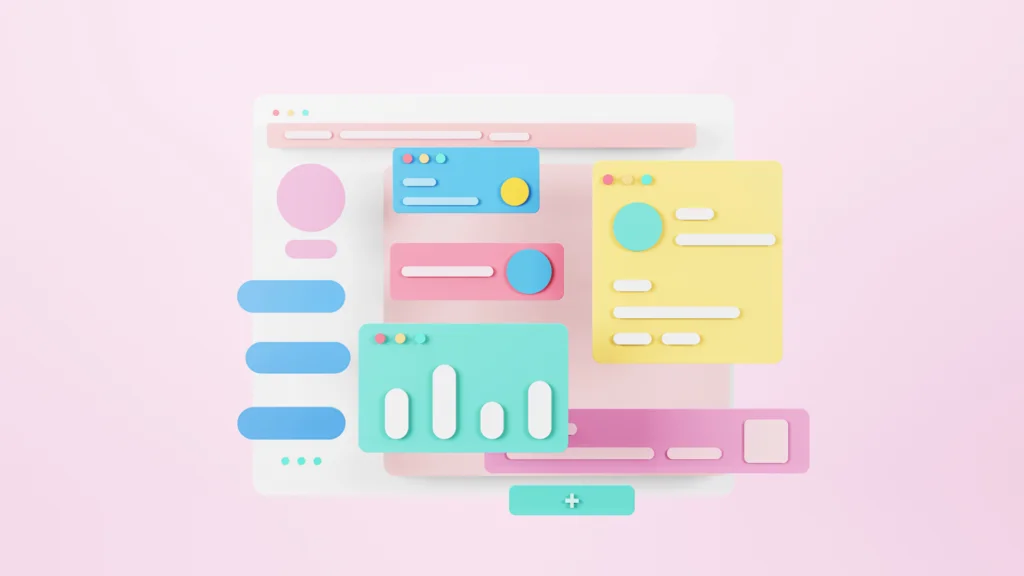
Today, having an online presence is essential for any business or venture. However, before diving into creating your website, it’s important to define what type of page you need according to your goals, audience, and resources. There are several types of websites, each with specific features and functions. In this article, we’ll help you identify which one best suits your needs.
1. Corporate website
If you have a company and want to share information about your business, services, and values, a corporate website is ideal. This type of site usually includes sections such as:
- Home: Overview of the company and its values.
- About us: History, mission, vision, and team.
- Services or products: Detailed description of what you offer.
- Blog: Space to share news, tips, and relevant information.
- Contact: Form, address, and social media links.
Ideal for: Companies, freelancers, and organizations seeking a professional online presence.
2. Online store (E-commerce)
If your goal is to sell products or services online, you need an e-commerce website. These pages allow users to browse products, add them to the shopping cart, and make secure payments.
Some key features of an online store are:
- Product catalog: Images, descriptions, and prices.
- Shopping cart and payment gateways: Methods like credit cards, PayPal, bank transfers, etc.
- Inventory management: Real-time stock control.
- Reviews and testimonials: To build buyer trust.
Ideal for: Retail companies, entrepreneurs, and businesses that want to sell products online.
3. Landing Page
Landing pages are designed with a specific purpose, such as lead generation, product launches, or marketing campaigns. They are usually simple, with an attractive design and a clear call to action.
Essential elements of a landing page:
- Attractive headline: Capture the user’s attention immediately.
- Concise description: Benefits of the product or service.
- Contact form: Collect visitor information.
- Call to action (CTA): Such as “Download now” or “Request information.”
Ideal for: Digital marketing campaigns, lead generation, and product launches.
4. Personal or professional blog
If your goal is to share valuable content, educate your audience, or improve your website’s SEO, a blog is the perfect option. A blog can include articles on specific topics, tutorials, opinions, and more.
A good blog should have:
- Relevant and updated content.
- Keyword strategy to attract organic traffic.
- Integration with social media.
- Comments section to encourage interaction.
Ideal for: Professionals, content creators, and companies that want to position themselves as industry leaders.
5. Portfolio website
Creatives such as designers, photographers, artists, and developers need to showcase their work visually and attractively. An online portfolio is the best option to display projects and attract potential clients.
Key components of a portfolio website:
- Work gallery: Images and detailed descriptions.
- Client testimonials: To demonstrate credibility.
- Social media links: To connect with a wider audience.
- Contact form: To receive job requests.
Ideal for: Freelancers, designers, photographers, and creative agencies.
6. Educational platform (E-learning)
If you want to offer courses, training, or educational material, an E-learning website is the ideal solution. These pages allow users to enroll in courses, access educational material, and obtain certifications.
Essential features of an educational platform:
- Videos and downloadable material.
- Assessments and certifications.
- Membership or payment systems.
- Forums and discussion sections.
Ideal for: Educational institutions, coaches, and training companies.
7. Online forums and communities
If your intention is to create a community where users can interact, ask questions, and share information, an online forum is the best option. These sites encourage participation and knowledge sharing.
Important features:
- Topic categorization.
- Moderators to manage content.
- User profiles and reputation system.
- Integration with social media.
Ideal for: Niche communities, technical support, and discussion groups.
Conclusion: Which is the best option for you?
Defining what type of website you need will depend on your business goals and the type of interaction you want with your audience. Before making a decision, analyze what features you need and how you want to present your brand online.
If you’re still not sure, at Cuernosoft we can advise you! Contact us and we’ll help you build the perfect website for your needs.